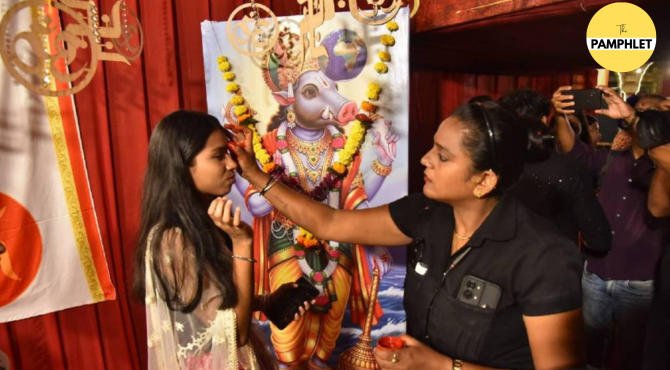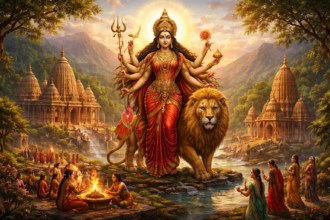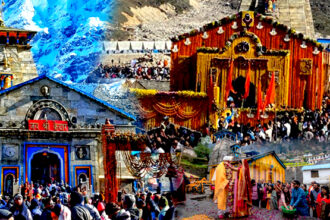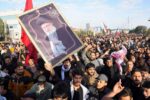Several Garba pandals in Maharashtra have introduced posters and entry rules aimed at safeguarding the devotional and cultural sanctity of Navratri, a festival deeply rooted in Indian traditions and religious beliefs.
Posters outside the pandals carried strong messages. One read “Become Durga, become Kali, but never lose your identity,” while another quoted Chhatrapati Shivaji Maharaj: “If you do not take up arms, you will lose the nation.” A particularly notable image was that of Lord Vishnu’s Varaha avatar, revered in Hindu tradition as a divine protector.
Organizers from the Vishwa Hindu Parishad (VHP) and Durga Vahini stated that the posters were designed to encourage vigilance and remind participants that Garba is not just dance and music, but a form of devotion to the Goddess Durga.
Entry rules and symbolism
Alongside the posters, certain pandals required participants to follow specific entry rituals. These included applying a tilak, wearing a sacred thread (kalava), showing ID cards for verification, and, in some cases, offering respect to the Varaha image at the entrance.
The symbolism of Varaha was emphasized by organizers. In Hindu scriptures, Varaha represents protection against chaos and disorder. By placing this image at Garba entrances, organizers said they were both honoring tradition and reinforcing the idea of the pandal as a sacred space.
Reasons for the measures
According to VHP representatives, the rules were introduced after repeated reports of disturbances at Garba events in previous years. The measures, they argued, are designed to ensure the safety of all participants, particularly women, and preserve the devotional atmosphere of the celebrations.
They also emphasized that festivals should remain faithful to their spiritual origins. “Garba is a form of worship, a spiritual journey, not merely entertainment,” one organizer said, underlining the profound significance of the event.
Political debate sparks
The initiative has drawn sharp political reactions. Congress leader Vijay Wadettiwar criticized the posters and rules, alleging that they were aimed at dividing society for political gain.
Supporters, however, counter that the steps are protective rather than divisive. They argue that similar scrutiny is rarely applied to festivals of other faiths, and that raising concerns over Garba-specific rules ignores the safety issues that organizers are trying to address.
The larger debate
The introduction of Varaha posters and entry conditions reflects a larger debate around the role of religion, safety, and identity in public festivals. This debate often revolves around the balance between preserving religious and cultural traditions and ensuring inclusivity and protection for all participants. While the organizers frame their actions as protective and devotional, critics see them as exclusionary.
Ultimately, the controversy underlines a recurring pattern: Hindu festivals often become flashpoints for broader cultural and political debates, where the balance between faith, tradition, and inclusivity is contested.









